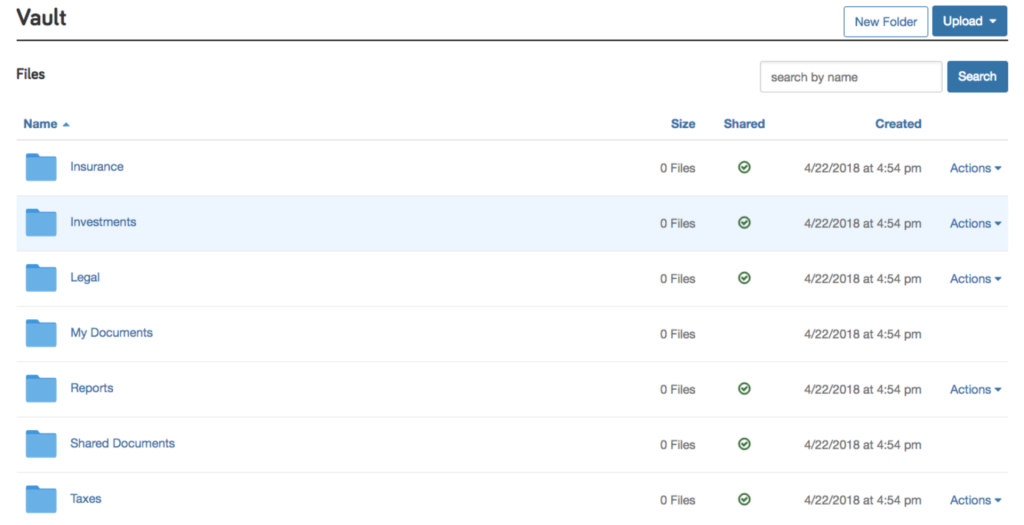What’s the first thing that comes to mind when you hear estate planning?
Old people? Something that is done once you have lots of money? Maybe something that you’ll deal with later, but not today?
I have news for you. You already have an estate plan!
That’s right. Whether you know it or not, you already have a plan in place for what will happen to you upon death or disability.
The question is who is making that plan for you. Because by default the government creates an estate plan for you. And it goes a little something like this – when you die, everything goes through the court system unless documented otherwise.
So the question becomes who do you want to control what happens to your family and possessions when you die? You or the government?
And if estate planning sounds like something that you don’t do until your older, think again. Here are seven things that people of any age should absolutely be doing with their estate plan:
#1 – Establish a Power of Attorney
Accidents can happen at any time. And while this is never a fun topic to think about for anyone, I’m sure most of you can think of someone you know who had a serious life-altering accident.
Do you know what would happen if you were in a car accident today and fell into a coma? Who would make the medical decisions for you regarding your treatment? Who would help to make sure that your bills continued to be paid on time while you were disabled.
A power of attorney helps to appoint someone to make financial decisions and medical decisions for you in the case of your incapacity. If you don’t have a power of attorney then your family may have to petition a court to obtain the powers needed to manage your medical or financial affairs. This can be a time-consuming process and there’s no need to put your family through that when a simple power of attorney could have done the job for you.
#2 Appoint a Guardian for Your Children.
If you’re married and something happens to one spouse, then the surviving spouse will almost always take on the role of caring for the kids moving forward.
If something happens to both parents at the same time, however, then the process becomes more difficult and convoluted.
Two spouses both might assume that their parents will care for the children if something happens to them. But it’s critically important to get this in writing. If there is disagreement or uncertainty as to what will happen then a court may need to appoint a guardian. As is normally the case with the legal system, this can turn into a lengthy process.
Be sure to name a guardian for your children in your will so that nothing is left to chance and best wishes if someone has to step in to raise your children.
ALSO! You should do this even if your kids aren’t born yet!
Because you know what happens when you have kids? You get busy.
And you know what happens when you get busy? You neglect important tasks like adding a guardian for your kids in your will.
Take the time to do this now and your future child-raising self will thank you.
#3 – Create a Last Will & Testament
There is often times confusion around what a Last Will & Testament is. Think of it this way:
It is your way of letting the state know what your will for your property is when you pass away.
And again, when you think “estate” don’t just think of something that only ultra-wealthy people have. You have an estate if you own a bank account, furniture, a car, or even social media accounts!
Rather than just talking about what you want to happen with your belongings, a will is your way of telling the state how your belongings are to be distributed.
A will can contain many different provisions. Here are some common ones:
- Designation of executor – this is the person who will be responsible for carrying out the provisions of the will.
- Designation of beneficiaries – this is who will inherit the assets.
- Guardians for minor children.
A will can indicate your burial wishes, how your assets will be distributed, who the guardian of your children will be, who will care for your pets, and more.
If you die without a will then your assets pass through intestacy. Intestacy is the state’s way of trying to distribute your assets in a manner they think an average person would want.
Maybe it’s just me, but I would prefer to be in charge of this process with my estate rather than relying on the state to figure it out.
If you’re like me and would prefer control over your assets then do yourself a favor and create a will today! This can be done online using services like Legalzoom or you can contact an estate planning attorney. It can be helpful to work with an attorney to make sure that this gets done right, especially if you have more complicated estate planning needs.
#4 – Consider a Living Trust
There are many different types of trusts. Many are used for advanced estate planning techniques, but the one that we’ll talk about here is a revocable living trust.
Revocable simply means that the person who created the trust (this person is called the grantor), can change the trust provisions as life changes or goals change. Living trust means that assets are placed and managed in the trust during the grantor’s lifetime.
People often ask what the difference is between a will and and trust. The main difference comes down to the fact that a will only goes into effect when you die, whereas a trust goes into effect as soon as you create it.
So what are the benefits of a trust?
- It can save you time. Assets inside of the trust avoid probate when you pass. Probate is the process that courts go through to determine who inherits your assets, and we all know how long courts can take.
- It can save you money. Probate is expensive and avoiding it could save you thousands of dollars. In California, probate fees can start at 4% of the value of your estate. Ouch!
- You have more privacy. Anything that happens in probate can be seen by the public. A trust helps you to distribute property in privacy.
- It can provide assistance in the event of your incapacitation. In case you become incapacitated, you can appoint a successor trustee to manage the trust assets for you. Remember this Britney Spears fiasco?
Here’s the important thing to note though – a trust only protects the assets that you place inside of it. In other words, if you create a trust, but fail to place your home, investment accounts, and other assets in it, then that property is going through the probate process as if the trust didn’t even exist!
#5 – Ensure Proper Beneficiary Designations on Your Retirement Accounts and Life Insurance Policies
We mentioned above that in order to be protected by the trust, your assets must first be placed into the trust. However, there are some assets that typically won’t go your trust. These include IRAs, 401(k)s, and sometimes life insurance policies.
The good news is that these types of accounts allow for the designation of beneficiaries. This is important because when the account allows you to designate a beneficiary your asset will transfer right to that individual upon your passing, instead of going through probate.
You can name primary beneficiaries and contingent beneficiaries. Primary beneficiaries are the heirs that will inherit your asset if you pass away. If primary beneficiaries are no longer living when you pass then the assets will transfer to your contingent beneficiaries instead.
Be sure to review beneficiary designations periodically on your retirement account and insurance policies. This is especially important after an event like marriage, divorce, birth of a child, or any other life changing scenario.
#6 – Get Organized
This one may seem obvious. But you would be surprised how often people fall ill or pass away without telling anyone where to find their important stuff!
Having a place to store to important documents is crucial to help out your heirs. Common documents to make sure that you keep records of include:
- A copy of your will and trust
- Other legal documents (power of attorneys, health care directives, business contracts)
- Insurance policies
- Deed to the home
- A List of investment accounts and where they’re held
Here’s a snapshot of a website that all of our clients receive when they work with us. This helps to keep all of their important documents organized and available in case of emergency.

Finding out where everything is stored is the last thing you want your family to be worried about if something happens to you. Do them a favor and compile this information today, so that you don’t have to worry about it later.
#7 – Tell Your Loved Ones!
What good is going through all this work if none of your heirs know where to find anything! Be sure to tell your heirs, executors, and successor trustees where everything is. Because if they can’t find it, then it’s not going to do you much good.
Final Thoughts
Congratulations! You just made it through a post on what might be the most depressing personal finance topics out there.
I know it’s never easy to think about what might happen to our family and loved ones if we pass. But I promise you this – if you follow these seven steps then you will have a greater peace of mind knowing that your financial wishes will still be carried out no matter what happens to you.


